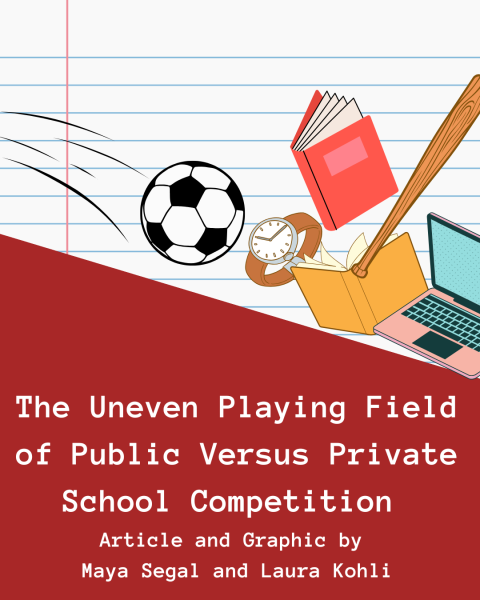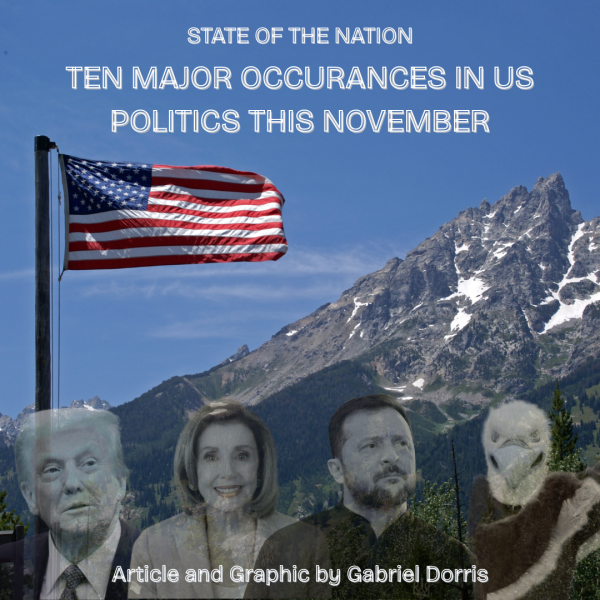The ‘I’m not like other girls’ Epidemic
“I’m not like other people”, “Be who you want to be”, and “ Think outside of the box” are all sayings I’ve been hearing since I can remember. These phrases and many others are all meant in a positive and uplifting way, encouraging children to pursue their dreams and think beyond standards. This is great, but at what cost will it affect a child’s way of thinking? What is so wrong with thinking inside the box? If someone wants to be practical, why force them to become more peculiar? In an age when we see uniqueness praised, when do we need to be exposed to the reality that reliance on the ordinary is acceptable?
Too often I hear people trying too hard to be the black sheep, or gatekeeping their preferences out of fear that there will be people too much like them. I see obscurity becoming the norm out of social fear of being too “basic”. Society has turned into a constant game of who can be a more unique individual and who can become the most self-determined.
This social trend is most common among Gen-Z, as we are in a key time in our development where we are discovering ourselves and figuring out what hobbies we wish to pursue for the rest of our lives. At a first glance, individualism might seem like the answer to this question, as it can push kids to find what really interests them instead of following the pack. However, too many kids try to not like mainstream things or assimilate with their peers, pushing them to hobbies that they don’t enjoy and causing embarrassment over “basic” things they do enjoy. This can be classified as ‘hyper-individualism’. Hyper-individualism has made it the social norm to be ‘not normal’. It pushes the belief that you cannot share ideas or interests with others.
This also introduces the term ‘gatekeeping’: guarding and protecting your interests out of fear they’ll become too mainstream, deeming your previously indie hobbies ordinary and lame. There are of course many who appreciate those who share niche interests and befriend like-minded people, however a majority of our generation shame others who are “too basic” or “too odd”, pushing the narrative that there will always be something you like that is somewhat unacceptable. There will always be a group of people telling you to act less one way and more the other, and another group telling you the exact opposite. This further skews our perception of reality, pushing individuals to self-determination to exceed societal standards and avoid the ordinary.
Individualism proves to be especially harmful online. Social media is a great platform where people can find others who share interests and allows people to fully express themselves. It’s no shock that social media is a glamorized version of people’s lives, and less often do you see posts about people’s struggles being expressed, rather it’s cute coffee dates, concerts, and edited, perfected pictures of 1% of the human experience.
Social media is, in its essence, extremely competitive. The whole concept thrives on who can have the most creative caption, who can add the most unique song to their story, and who can have the “hottest take” that makes them seem the most advanced. Niche groups and subgroups of people become the determining factors of who is cool and who is too much like the rest of us. The ideal life constantly being depicted on media that is constantly being consumed leads to a false belief in standards. This then affects people, making us feel the need to go beyond standards to feel validated, moreover, encouraging hyper-individualism.
The real dilemma lies in how we let this social strategy define our generation. Where do we draw the fine line that determines what’s too ‘out there’ and what’s too ‘basic’? Why is this leading to a social reckoning, and how can we stop our culture from turning us against one another? Obviously, there is no clear answer to these complex questions, but I do think there is one main point that can be taken away from the influx of hyper-individualism: It’s okay to be basic! Like whatever you want! Who cares if you still like pop music even though it’s mainstream? The constant need to prove yourself and your differentiation is silly and unrealistic. The reality of the matter is that ‘not being like others’ makes you exactly like others, and that is perfectly okay.
Your donation will support the student journalists of Enloe Magnet High School, allowing us to cover our annual website costs. We are extremely grateful for any contribution, big or small!

(She/her)
Ellie is a senior at Enloe and a proud member of the Eagle's Eye staff! She is involved in various communities at Enloe, including dance,...











Rosie Booth • Oct 31, 2022 at 12:41 PM
A thoughtfully written essay with a positive message. Well done, Ellie
LKruger • Oct 29, 2022 at 7:11 PM
Great job, Ellie! I agree. Just follow what you like.